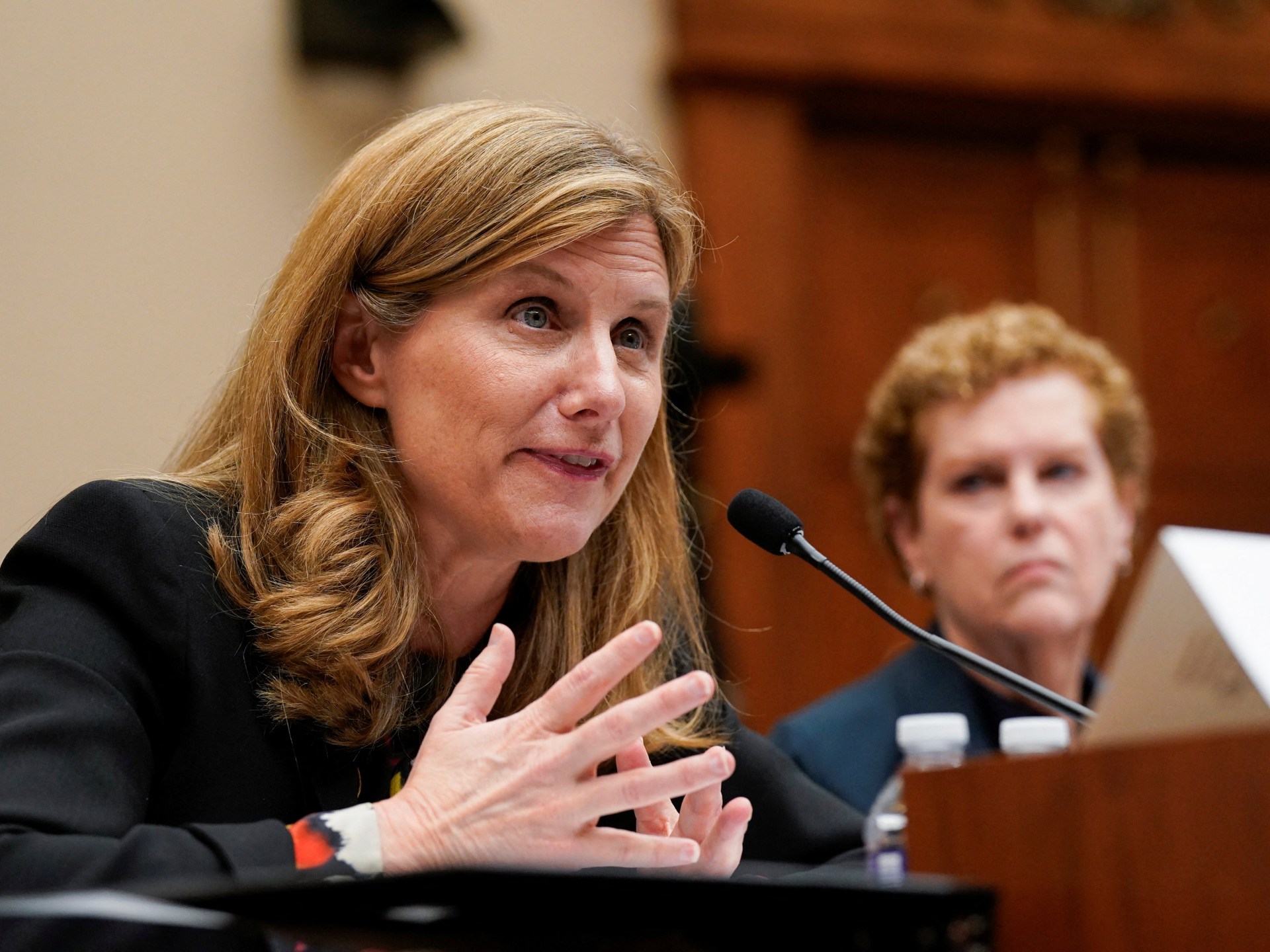
On the morning of December 10th I woke up to two messages. The first was from my father. He asked me to write to the U.S. State Department requesting the evacuation of my uncle and his family from Rafah in southern Gaza, where they “have no food, shelter or water and are in constant fear of the bombing.” . My aunt, my uncle’s wife, was killed by the Israelis in Gaza in 2014. Now he and his children face the real possibility of dying with her.
The second was an email from a friend in a senior leadership position at one of the major multilateral organizations. We attended the University of Pennsylvania together and she was dismayed by the capitulation of its current president, Liz Magill, to the right wing. But she rightly felt that she was unable to speak out because of the repressive environment in the workplace and in America in general.
If Magill, a moderate who stood for very little, couldn’t withstand a row of rusty pitchforks, what hope was there for a woman of color with Middle Eastern roots?
These two messages, so close together, captured well the different fronts of the war on Palestinian lives.
“We believed what we wanted to believe”
I graduated from the University of Pennsylvania with a degree in political science in 2006. My experiences with school were mixed. Having resources – which Penn does – is a beautiful thing for many reasons. But having money can also be a sign that you’re focusing on it too much.
Back then, securing a well-paying job after college was the most important challenge in a student’s life. The internships at consulting and banking firms were highly valued and were expected to lead to attractive offers from the same firms in New York or London.
Things don’t seem to have changed much: Penn ranked first in the 2024 Wall Street Journal/College Pulse Salary Impact study, ahead of Princeton, Columbia, MIT and Harvard. Or, like that headline The WSJ ranks the school first among “Top US Colleges That Make Their Graduates Richer.”
That’s not to say Penn was an apolitical place; Accumulating large amounts of money cannot possibly be apolitical.
I remember an early conversation with a young woman who, upon learning that I was from Palestine, replied, “There is no such thing.” Separately, I remember another student asking me about my student experience Activism made angry: “If you don’t like it here, you can go home, terrorist.”
While I suspect Penn’s focus on money was a major contributor to Magill’s ultimate downfall – her testimony before Congress was cited as a reason for the rescission of a $100 million donation – that’s not the whole story.
My experience at Penn was representative of the American elite’s cautious contempt for anything that threatens their self-image as meritocratic, deserving of high status, and morally above reproach. It is essentially a conservative attitude that opposes growth and defies all efforts at meaningful social education.
I observed this attitude later in life, as a graduate student at Harvard’s Kennedy School of Government. There I met some of the outstanding minds behind President George W. Bush’s disaster in Iraq. I remember a conversation I had with a senior State Department official who now serves as ambassador to a major country in Asia.
“Hans Blix,” I said, referring to the former head of the United Nations Monitoring, Verification and Inspection Commission, “told you that there are no weapons of mass destruction.” Why did you go to war?”
He disarmingly declared that “we believed what we wanted to believe.”
In seven words he captured the essence of a system that shields its people from responsibility, which today partly explains why my family in Gaza must die along with the rest of the Palestinians there. It explains President Joe Biden’s arrogance and the egg on his national security adviser’s long face.
Reproducing power
When I first learned about the hunt for a major quarry at Penn and Harvard, I shrugged. I treated the issue as a sideshow; false moralism in an alternate universe designed to distract from the ongoing atrocities in Palestine. But now I think I was probably too dismissive of what was happening and how it had a direct, if complex, connection to the Israeli genocide in Gaza.
The relationship between Capitol Hill, the university town where Penn rests extensively, Cambridge and Rafah is properly understood through the prism of power. The primary mission of elite higher education institutions in America is to reproduce power and the infrastructure that comes with it.
If society is an organism, the university is the clonal petri dish. But in nature nothing is reproduced perfectly; Evolution is an essential feature of every biological system. And developments within the university are leading to a departure from the closely guarded power structures that define our existing political order.
The right’s grotesque arguments on television, in newspapers and through congressional investigations are fueled by the awareness that young, educated people across generations always think differently. The attack on US universities is part of a larger effort to direct and control the development of thought in this society.
In this context, values are relative and language is valuable only insofar as it is not performed and lies dormant in the realm of abstract ideas such as “freedom” or “the arc of the moral universe.”
Now Magill stands, most likely unwillingly, as a lamb on the altar. Collateral damage in so many words. The people calling for her resignation may not have been able to explain their full reasons for her downfall.
But they show an innate understanding of what is at stake: the organism’s ability to reproduce itself is ingrained in the university more than anywhere else.
What they fail to understand, however, is that independent thought, much like Daniel Dennett’s theory of mind, arises everywhere at once. Nothing other than a shot to the brain can stop its formation.
Unfortunately, the emergence of a new political agreement on Palestine in the United States does not mean much for the people of Gaza today. My uncle and his family, as well as many thousands of others, could be dead when a new generation of Americans whose development was shaped by genocide comes to power.
The views expressed in this article are the author’s own and do not necessarily reflect the editorial stance of Al Jazeera.






Recent Comments